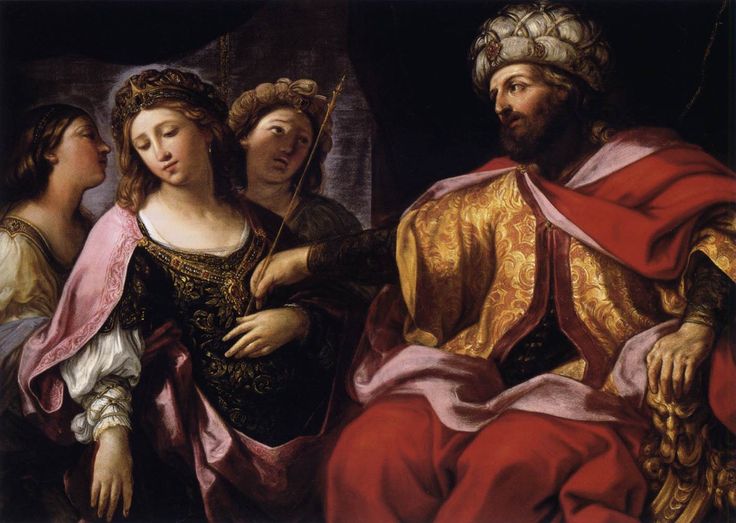The message of Purim continues to resonate over the centuries
The events commemorated in the Purim celebration may have occurred more than 2,500 years ago, but the message to honor God not man remains relevant today.
 Tonight is Purim — a holiday I’ve never celebrated because I was raised outside of traditional Jewish circles. The fact that I don’t celebrate Purim, though, does not mean that I’m unaware of it nor, more importantly, does it mean I’m unaware of the important messages it conveys.
Tonight is Purim — a holiday I’ve never celebrated because I was raised outside of traditional Jewish circles. The fact that I don’t celebrate Purim, though, does not mean that I’m unaware of it nor, more importantly, does it mean I’m unaware of the important messages it conveys.
Thankfully for all of you, you don’t have to listen to me as I try to waffle my way through to an intelligible analysis. Two of my favorite people in the blogosphere have written stunning posts discussing Purim and its relevance to today — not just to Jews, but to all people who value liberty.
The first post comes from Robert Avrech. In Purim: The Deeply Anti-Progressive Jewish Holiday, we first learn how assimilated Jews had become during their exile in 5th century B.C.E. Persian exile. Assimilation can be pleasant until your host realizes you have not been perfectly assimilated (a la the Borg), at which point relationships turn sour:
But there’s a Jew named Mordechai, a descendant of King Saul and King David. He’s old school; so pious and proud that unlike the compliant, liberal Jews of the kingdom, he refuses to bow down to the Grand Vizier Haman. Mordechai understands that the cult of personality is idolatry, paganism designed to replace G-d.
Mordechai only bows down to G-d.
And to the contempt and derision of the liberal Persian Jews, Mordechai actually takes Haman seriously.
Because Mordechai knows Jewish history. He knows the primary rule of Jewish history: when someone announces they plan on killing the Jews—believe them.
Mordechai did not graduate from an elite Persian university with a degree in Conflict Resolution. He studies Torah. He has common sense.
He knows that history is frequently a simple calculation: kill or be killed.
I recommend reading the whole thing.
The other Purim post I highly recommend comes from Daniel Greenfield, who writes about The Endless Ages of Purim:
If Purim had culminated with some smart power diplomacy and a lesson on tolerance, liberal Jews might be more inclined to celebrate it. Unfortunately it ends with a genocidal madman being hung from a tree and the Jews fighting for their lives, winning and slaughtering their enemies.
And instead of feeling guilty about it, their descendants eat pastries, dress up in costumes and get drunk. At least those of their descendants who believe in survival instead of surrender.
Liberal Jews complain about the difference of values they have with Israeli Jews who insist on survival instead of surrender. They have an even bigger difference of values with the Jews of the Bible. And with Jews throughout history. Not to mention with the religion of the Jewish people.
The more liberal a Jew is, the less likely he is to celebrate the substance of his people’s holidays as they conflict with his worldview and virtues. Moshe, the Maccabees and Mordechai don’t seem like role models, not even if you rebrand them as community organizers and claim that they were fighting prejudice. There is something relentlessly bloody-minded about them. They care very little about a sustainable environment or LGBT rights, and instead walk through the corpses of their enemies with no regrets or apologetic winces. They stand up for their own people in a regrettable show of tribalism that perpetuates the cycle of violence instead of preaching about Tikkun Olam.
There’s much more and, again, I highly recommend it.
I have only one quibble with these learned, humanist men, and it has more to do with the fact that I am a pedant than my being any kind of scholar. When talking about the execution method that calls for stringing people up with ropes, before dropping them and killing them either through suffocation or spinal dislocation, the past tense of “hang” is “hanged” not “hung”. That is why the old British judges, having imposed the death sentence on a defendant, would then say that the person was to be taken to the place of execution and “hanged by the neck until dead.”
I’ve remembered that little piece of grammar over the years thanks to an allegedly true story about a radio broadcast back during the 1930s or 1940s. It appears that a goodly portion of the American audience, which was still educated in the old ways, either laughed themselves silly or complained to the authorities when a character stated of a traveling executioner that “you can always tell when he’s been in the town by how well the outlaws are hung.” Being well-hung might make for good Chippendale dancers, but it’s not true to the code of the West — or of ancient Persia.

